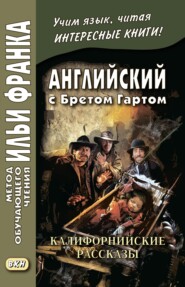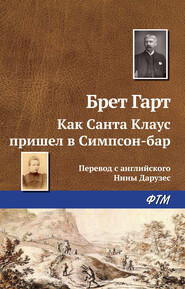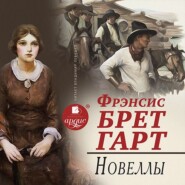По всем вопросам обращайтесь на: info@litportal.ru
(©) 2003-2025.
✖
Gabriel Conroy
Автор
Год написания книги
2017
Настройки чтения
Размер шрифта
Высота строк
Поля
"The bodies who were identified were those of Paul Devarges and Grace Conroy."
"Oh, no! no!" said Grace, clasping her hands, wildly; "it is a mistake! You are trying to frighten me, a poor, helpless, friendless girl! You are punishing me, gentlemen, because you know I have done wrong, because you think I have lied! Oh, have pity, gentlemen. My God – save me – Philip!"
And with a loud, despairing cry, she rose to her feet, caught at the clustering tendrils of her hair, raised her little hands, palms upward, high in the air, and then sank perpendicularly, as if crushed and beaten flat, a pale and senseless heap upon the floor.
The Commander stooped over the prostrate girl. "Send Manuela here," he said quickly, waving aside the proffered aid of the secretary, with an impatient gesture quite unlike his usual gravity, as he lifted the unconscious Grace in his arms.
An Indian waiting-woman hurriedly appeared, and assisted the Commander to lay the fainting girl upon a couch.
"Poor child!" said the Commander, as Manuela, bending over Grace, unloosed her garments with sympathetic feminine hands. "Poor little one, and without a father!"
"Poor woman!" said Manuela to herself, half aloud; "and without a husband."
BOOK II.
AFTER FIVE YEARS
CHAPTER I.
ONE HORSE GULCH
It was a season of unexampled prosperity in One Horse Gulch. Even the despondent original locator, who, in a fit of depressed alcoholism, had given it that infelicitous title, would have admitted its injustice, but that he fell a victim to the "craftily qualified" cups of San Francisco long before the Gulch had become prosperous. "Hed Jim stuck to straight whisky he might hev got his pile outer the very ledge whar his cabin stood," said a local critic. But Jim did not; after taking a thousand dollars from his claim, he had flown to San Franciscos, where, gorgeously arrayed, he had flitted from champagne to cognac, and from gin to lager beer, until he brought his gilded and ephemeral existence to a close in the country hospital.
Howbeit, One Horse Gulch survived not only its godfather, but the baleful promise of its unhallowed christening. It had its Hotel and its Temperance House, its Express office, its saloons, its two squares of low wooden buildings in the main street, its clustering nests of cabins on the hill-sides, its freshly-hewn stumps, and its lately-cleared lots. Young in years, it still had its memories, experiences and antiquities. The first tent pitched by Jim White was still standing, the bullet holes were yet to be seen in the shutters of the Cachucha saloon, where the great fight took place between Boston Joe, Harry Worth, and Thompson of Angel's; from the upper loft of Watson's "Emporium" a beam still projected from which a year ago a noted citizen had been suspended, after an informal inquiry into the ownership of some mules that he was found possessed of. Near it was a small unpretentious square shed, where the famous caucus had met that had selected the delegates who chose the celebrated and Honourable Blank to represent California in the councils of the nation.
It was raining. Not in the usual direct, honest, perpendicular fashion of that mountain region, but only suggestively, and in a vague, uncertain sort of way, as if it might at any time prove to be fog or mist, and any money wagered upon it would be hazardous. It was raining as much from below as above, and the lower limbs of the loungers who gathered around the square box stove that stood in Briggs's warehouse, exhaled a cloud of steam. The loungers in Briggs's were those who from deficiency of taste or the requisite capital avoided the gambling and drinking saloons, and quietly appropriated biscuits from the convenient barrel of the generous Briggs, or filled their pipes from his open tobacco canisters, with the general suggestion in their manner that their company fully compensated for any waste of his material.
They had been smoking silently – a silence only broken by the occasional hiss of expectoration against the hot stove, when the door of a back room opened softly, and Gabriel Conroy entered.
"How is he gettin' on, Gabe?" asked one of the loungers.
"So, so," said Gabriel. "You'll want to shift those bandages again," he said, turning to Briggs, "afore the doctor comes. I'd come back in an hour, but I've got to drop in and see how Steve's gettin' on, and it's a matter of two miles from home."
"But he says he won't let anybody tech him but you," said Mr. Briggs.
"I know he says so," said Gabriel, soothingly; "but he'll get over that. That's what Stimson sed when he was took worse, but he got over that, and I never got to see him except in time to lay him out."
The justice of this was admitted even by Briggs, although evidently disappointed. Gabriel was walking to the door, when another voice from the stove stopped him.
"Oh, Gabe! you mind that emigrant family with the sick baby camped down the gulch! Well, the baby up and died last night."
"I want to know," said Gabriel, with thoughtful gravity.
"Yes, and that woman's in a heap of trouble. Couldn't you kinder drop in in passing and look after things?"
"I will," said Gabriel thoughtfully.
"I thought you'd like to know it, and I thought she'd like me to tell you," said the speaker, settling himself back again over the stove with the air of a man who had just fulfilled, at great personal sacrifice and labour, a work of supererogation.
"You're always thoughtful of other folks, Johnson," said Briggs, admiringly.
"Well, yes," said Johnson, with a modest serenity; "I allers allow that men in Californy ought to think of others besides themselves. A little keer and a little sabe on my part, and there's that family in the gulch made comfortable with Gabe around 'em."
Meanwhile this homely inciter of the unselfish virtues of One Horse Gulch had passed out into the rain and darkness. So conscientiously did he fulfil his various obligations, that it was nearly one o'clock before he reached his rude hut on the hill-side, a rough cabin of pine logs, so unpretentious and wild in exterior as to be but a slight improvement on nature. The vines clambered unrestrainedly over the bark-thatched roof; the birds occupied the crevices of the walls, the squirrel ate his acorns on the ridge pole without fear and without reproach.
Softly drawing the wooden peg that served as a bolt, Gabriel entered with that noiselessness and caution that were habitual to him. Lighting a candle by the embers of a dying fire, he carefully looked around him. The cabin was divided into two compartments by the aid of a canvas stretched between the walls, with a flap for the doorway. On a pine table lay several garments apparently belonging to a girl of seven or eight – a frock grievously rent and torn, a frayed petticoat of white flannel already patched with material taken from a red shirt, and a pair of stockings so excessively and sincerely darned, as to have lost nearly all of their original fabric in repeated bits of relief that covered almost the entire structure. Gabriel looked at these articles ruefully, and, slowly picking them up, examined each with the greatest gravity and concern. Then he took off his coat and boots, and having in this way settled himself into an easy dishabille, he took a box from the shelf, and proceeded to lay out thread and needles, when he was interrupted by a child's voice from behind the canvas screen.
"Is that you, Gabe?" – "Yes."
"Oh, Gabe, I got tired and went to bed."
"I see you did," said Gabriel drily, picking up a needle and thread that had apparently been abandoned after a slight excursion into the neighbourhood of a rent and left hopelessly sticking in the petticoat.
"Yes, Gabe; they're so awfully old!"
"Old!" repeated Gabe, reproachfully. "Old! Lettin' on a little wear and tear, they're as good as they ever were. That petticoat is stronger," said Gabriel, holding up the garment and eyeing the patches with a slight glow of artistic pride – "stronger, Olly, than the first day you put it on."
"But that's five years ago, Gabe."
"Well," said Gabriel, turning round and addressing himself impatiently to the screen, "wot if it is?"
"And I've growed."
"Growed!" said Gabriel, scornfully. "And haven't I let out the tucks, and didn't I put three fingers of the best sacking around the waist? You'll just ruin me in clothes."
Olly laughed from behind the screen. Finding, however, no response from the grim worker, presently there appeared a curly head at the flap, and then a slim little girl, in the scantiest of nightgowns, ran, and began to nestle at his side, and to endeavour to enwrap herself in his waistcoat.
"Oh, go 'way!" said Gabriel, with a severe voice and the most shameless signs of relenting in his face. "Go away! What do you care? Here I might slave myself to death to dress you in silks and satins, and you'd dip into the first ditch or waltz through the first underbrush that you kem across. You haven't got no sabe in dress, Olly. It ain't ten days ago as I iron-bound and copper-fastened that dress, so to speak, and look at it now! Olly, look at it now!" And he held it up indignantly before the maiden.
Olly placed the top of her head against the breast of her brother as a point d'appui, and began to revolve around him as if she wished to bore a way into his inmost feelings.
"Oh, you ain't mad, Gabe!" she said, leaping first over one knee and then over the other without lifting her head. "You ain't mad!"
Gabriel did not deign to reply, but continued mending the frayed petticoat in dignified silence.
"Who did you see down town?" said Olly, not at all rebuffed.
"No one," said Gabriel, shortly.
"You did! You smell of linnyments and peppermint," said Olly, with a positive shake of the head. "You've been to Briggs's and the new family up the gulch."
"Yes," said Gabriel, "that Mexican's legs is better, but the baby's dead. Jest remind me, to-morrow, to look through mother's things for suthin' for that poor woman."
"Gabe, do you know what Mrs. Markle says of you?" said Olly, suddenly raising her head.
"No," replied Gabriel, with an affectation of indifference that, like all his affectations, was a perfect failure.
"She says," said Olly, "that you want to be looked after yourself more'n all these people. She says you're just throwing yourself away on other folks. She says I ought to have a woman to look after me."

















